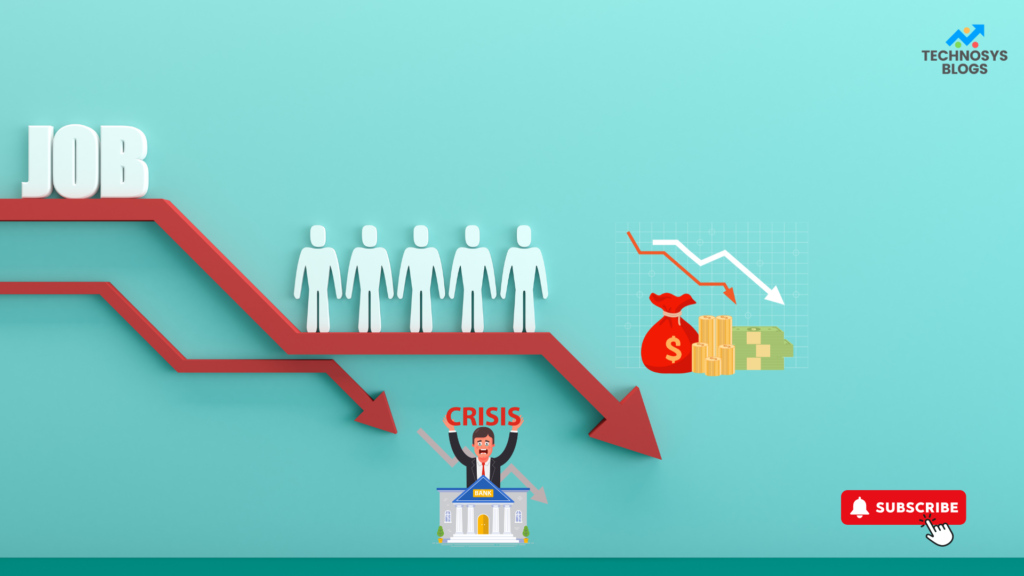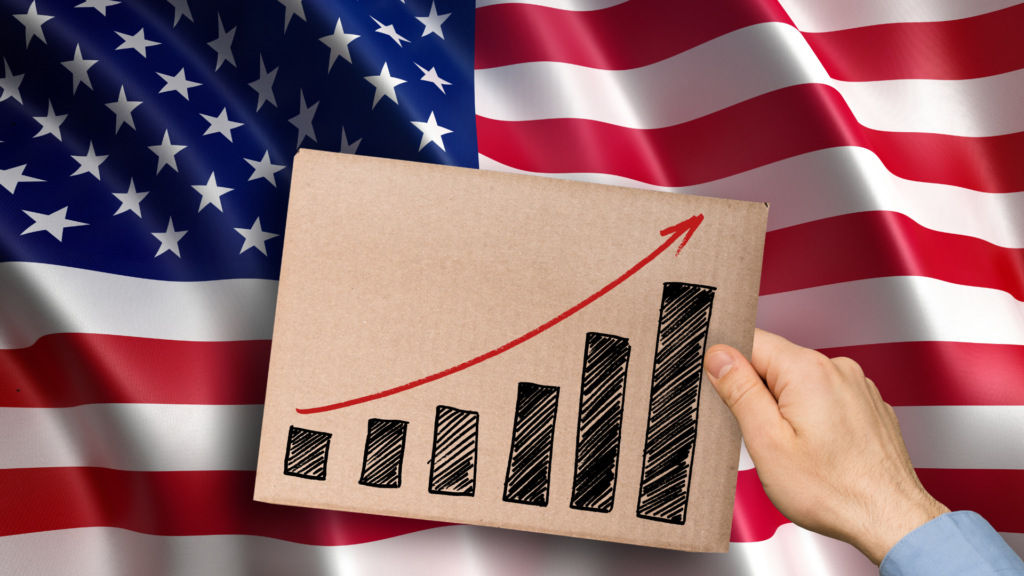
As we approach the second half of 2024, concerns about a potential recession loom large. Various economic indicators and global events shape these concerns, making it crucial to analyze current data and trends. This article will explore the likelihood of a recession in 2024, focusing on key economic indicators, global factors, and expert opinions.
Understanding Recession
A recession is generally defined as a significant decline in economic activity across the economy, lasting more than a few months. It is visible in GDP, real income, employment, industrial production, and wholesale-retail sales. The National Bureau of Economic Research (NBER) officially declares recessions in the U.S., but by the time a recession is declared, the economy has often already been suffering for several months.
Current Economic Indicators (Recession in 2024)
To predict whether there will be a recession in 2024, we need to look at current economic indicators:
Gross Domestic Product (GDP) Growth: GDP growth has been fluctuating, with some quarters showing growth and others showing contraction. A consistent decline over two quarters typically signals a recession.
Unemployment Rates: Low unemployment rates are a positive sign, but sudden spikes can indicate economic distress. As of now, unemployment remains relatively low, but any abrupt changes could be a warning sign.
Inflation Rates: Inflation has been high, driven by various factors including supply chain issues and geopolitical tensions. High inflation often leads to increased interest rates, which can stifle economic growth.
Stock Market Trends: The stock market can be volatile and is influenced by numerous factors, including investor sentiment, interest rates, and global events. Recent trends have shown both growth and correction phases.
Consumer Confidence: Consumer spending drives a significant portion of the economy. High consumer confidence generally indicates economic growth, while low confidence can signal a downturn.
Global Economic Factors ( Recession in 2024)
US Economy
The US economy plays a pivotal role in global financial stability. In 2024, it faces several challenges, including high inflation, rising interest rates, and geopolitical tensions. The Federal Reserve’s policies to control inflation may impact economic growth. Observers are divided on whether these measures will successfully stabilize the economy or push it towards a recession.

European Economy
Europe’s economy has its own set of challenges. The ongoing energy crisis, partly due to geopolitical conflicts, continues to affect economic performance. Inflation remains high, and consumer confidence is shaky. Additionally, policy responses from the European Central Bank (ECB) are closely watched. A cautious approach might be necessary to avoid further economic slowdown.

Emerging Markets
Emerging markets are significant for global economic growth. In 2024, these markets face pressures from high inflation and external debts. Countries like Brazil, India, and South Africa are experiencing varied economic performances. Their ability to navigate these challenges will influence the global economic landscape. Any major disruptions could have ripple effects on the global economy.
Expert Opinions
Economists and financial experts have varying views on whether a recession will occur in 2024. Some believe that the current economic resilience, particularly in the job market and consumer spending, may help stave off a recession. Others point to the high inflation and potential for aggressive interest rate hikes by central banks as factors that could tip the economy into a recession.
Optimistic Viewpoint: Some experts argue that the economy’s underlying strength, especially in sectors like technology and healthcare, could help avoid a recession. They also highlight the potential for government intervention and fiscal policies to mitigate downturn risks.
Pessimistic Viewpoint: Others caution that the combination of high inflation, rising interest rates, and global uncertainties (such as geopolitical conflicts and trade issues) could lead to an economic slowdown. They emphasize that while short-term resilience is evident, long-term sustainability is questionable.
Preparing for a Potential Recession in 2024
Whether or not a recession occurs, it’s wise to be prepared. Here are some strategies to safeguard your finances:
Diversify Investments: Diversification can help mitigate risks. Consider a mix of stocks, bonds, real estate, and other assets.
Build an Emergency Fund: Having a robust emergency fund can provide a cushion during economic downturns. Aim for 3-6 months’ worth of living expenses.
Reduce Debt: Lowering high-interest debt can reduce financial strain. Focus on paying off credit cards and loans.
Continue Education and Skills Development: Enhancing your skills can make you more valuable in the job market, reducing the risk of unemployment during a recession.
Stay Informed: Keep an eye on economic news and trends. Being aware of potential changes can help you adjust your financial strategies accordingly.
Frequently Asked Questions (FAQs)
Q: What exactly triggers a recession in 2024?
A: Recessions can be triggered by various factors, including high inflation, rising interest rates, reduced consumer confidence, and significant geopolitical events. Often, it’s a combination of factors that leads to an economic downturn.
Q: How long do recessions typically last?
A: The duration of recessions varies. Historically, recessions have lasted from a few months to several years. The 2008 recession, for example, lasted about 18 months.
Q: What sectors are most affected during a recession?
A: Sectors such as retail, manufacturing, and real estate often feel the impact of a recession more acutely. However, sectors like healthcare and utilities tend to be more recession-resistant.
Q: Can government policies prevent a recession?
A: Government policies, including fiscal stimulus and monetary policy adjustments, can help mitigate the impact of a recession. However, they may not always prevent a recession entirely.
Q: Should I continue investing if a recession is predicted?
A: Investment decisions should be based on long-term goals rather than short-term market predictions. Diversification and a well-thought-out investment strategy can help manage risks.
Q: How can I protect my job during a recession?
A: Enhancing your skills, maintaining a strong work ethic, and being adaptable can increase your job security. Networking and staying informed about industry trends can also be beneficial.
Conclusion
Predicting a recession is complex, involving numerous variables and economic indicators. While some signs point towards potential economic challenges in 2024, others suggest resilience and growth. The best approach is to stay informed, prepare for various scenarios, and make prudent financial decisions. Whether a recession hits or not, being prepared can help you navigate economic uncertainties with confidence.
Contact us at www.technosysblogs.com
